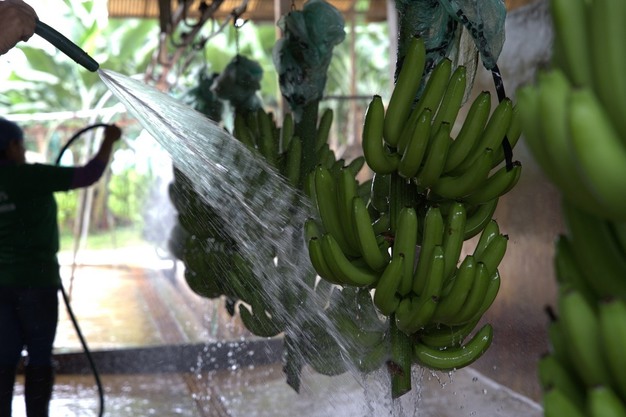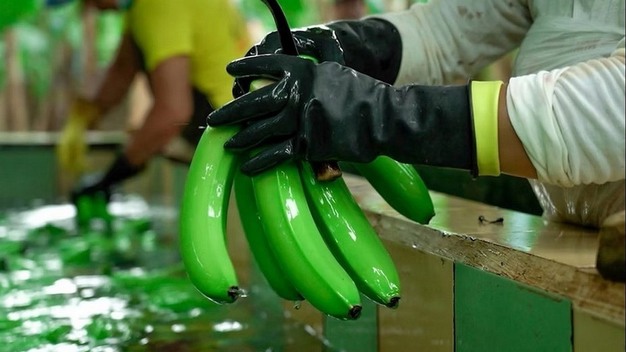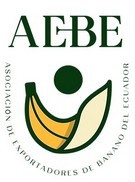Ecuadorian bananas face a significant challenge: despite being one of the most regulated and certified agricultural products in terms of sustainability, the prices paid to producers and exports don't reflect their efforts in the field.
 © AEBE
© AEBE
José Antonio Hidalgo, executive director of the Association of Banana Exporters of Ecuador (AEBE), reported that between July 2024 and July 2025, exports grew by 4.95%, reaching 229.8 million boxes. The main destination markets were the European Union (30.79%), Russia (19.21%), and the Middle East (14.31%). However, this growth comes despite increasing demands and costs related to sustainability and safety.
"The banana farms are fully certified according to international standards, and we have had to make significant investments in security measures. The industry spends over $100 million each year on security. All these costs are not reflected in the final price," Hidalgo stated.
According to AEBE, programs funded by supermarkets and international agencies often do not reach rural areas. "These resources should support foundations and programs already working directly in education, health, and rural development in producing regions. That's what really generates an impact," he stressed.
 © AEBE
© AEBE
Security concerns are also impacting the industry. The increase in illegal drug trafficking in the region makes it necessary to reinforce the custody of the fruit from the farm to the port. "Costs are not only environmental and social but also security-related. This responsibility must be shared by retailers and communicated to consumers," Hidalgo said.
"The sector's message to supermarkets is clear: since they have direct contact with consumers, they should communicate the true value of bananas. It's not just about presenting them as a cheap, attractive product on shelves but telling the story behind each box—covering certification, safety investments, and social programs that support thousands of producer families," he stressed.
 © AEBE
© AEBE
"For years, bananas have been used as a price anchor to remain competitive, putting the economic sustainability of the chain at risk. Today, we ask for fair trade recognition and for prices to consistently reflect the social, environmental, and security efforts that go into producing and exporting bananas. In essence, bananas can no longer be sustainable only in words; they must also be sustainable in price," Hidalgo concluded.
 For more information:
For more information:
José Antonio Hidalgo
AEBE
Ecuador
Tel. +593 99 952 4959
Email: [email protected]
www.aebe.com.ec
